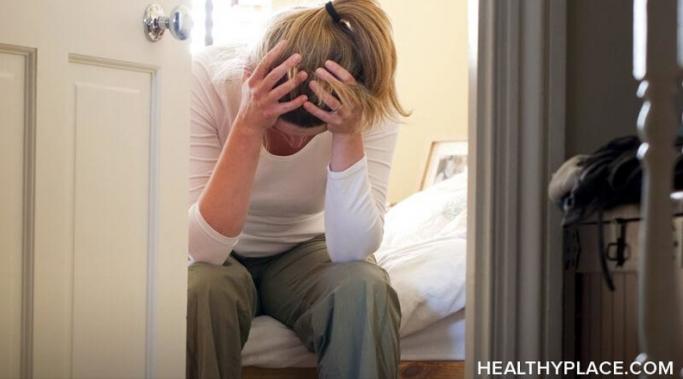On Friday, my psychiatrist told me that a fellow eating disorders patient recently died.
To say I was stunned would be an understatement.
Eating Disorders Treatment
I woke up in a cold sweat, terrified. My heart was racing and I was fighting nausea. I was still wearing the clothes I came home in the day before. I reached for my cell phone and quickly called 911. I was panicking and it was difficult for me to talk. I explained what was going on while the dispatcher tried to calm me and get me to take my pulse. Soon the paramedics and police were at my home.
I was freezing as they wheeled me out to the waiting ambulance. At the hospital, I told them that I had been in an area hospital for seven days for re-feeding and detox from alcohol and prescription drugs. I noticed a slight change in their attitude as they listened. Soon, I was told that it was caused by withdrawal from benzodiazepines, or tranquilizers. The ER staff then discharged me at 1:30 a.m.
I arrived home, confused and wondering if I would ever get better.
It was 3 a.m., January 1, 2012. I had been struggling to sleep for hours. All had did though was constantly shift around in my hospital bed and throw covers on and off, as my head throbbed and waves of heat flushed my face. It left me hot and then freezing cold.
It was the last night of my hospital stay and I had gotten progressively sicker in the past few days. The nurses simply told me I must have the flu or something since I had a slight fever and struggled to eat — not a good thing for a recovering anorexic. I pushed the call button for the night nurse, hoping for some relief but knowing I had just taken a pain killer a few hours before and, therefore, there was nothing anyone could do. He brought me a box of tissues as I started crying and tossing around, saying "I guess this is what they call hitting rock bottom, huh?" He told me to go ahead and cry.
I had been in the hospital since December 26. It has been both the hardest and most rewarding thing I have ever done.
There are times when your eating disorder and/or other co-morbid illnesses require inpatient psychiatric treatment. In an earlier post, I discussed my decision to enter an inpatient psychiatric hospital for anorexia, alcohol abuse treatment. In this video, I talk more about why I need inpatient eating disorders treatment.
In February 2010, I entered inpatient treatment for anorexia nervosa, anxiety, and depression. I felt like a complete failure that this was my sixth inpatient admission, and I vowed that it would be my last admission.
On Monday, I will once again admit myself to the hospital for six days of psychiatric treatment. It was a difficult decision to make, and one that many of us struggling with eating disorders and co-morbid illnesses often face.
The first step in recovering from any eating disorder is accepting that you do have an illness that deserves and needs treatment.
The next step is finding the appropriate people to guide you in recovering from your eating disorder. That can be very difficult. However, there are different types of help out there and I would encourage you to never give up trying to find what works for you.
Surviving ED really is the fulfillment of a dream: to reach out to other people who have eating disorders, and to offer them both honesty and hope and perhaps help them feel just a little bit less alone in their own journeys of recovery.
Surviving ED is one-year old this week. The road of recovery has been long and winding, with many twists and turns, lapses and relapses, and picking myself up to try just one more time. The journey of recovery sometimes feels endless and tiring, and I know that it is hard to not want to give up.
However, at the end is freedom from anorexia and ultimately, a full and healthy life.
For weeks, I have struggled to do anything beyond the bare minimum. Eating disorders are in part coping mechanisms, and can be deceptively helpful in masking painful emotions. That can make recovery from an eating disorder very difficult, because most people struggle with painful emotions and would rather push these feelings aside than face them.
I always like to think I am different - but I am not - and that I can push through the emotions the recovery stirs up. Each time I begin the recovery process with a fierce determination to beat anorexia nervosa for the last time. I feel strong and sure as I start to eat regular meals and snacks and stop all related eating disorder behaviors, and I know in my heart that I will travel the road to full recovery without roadblocks or detours.
But emotions can only be suppressed for so long, and I inevitably become anxious and depressed as I begin to eat like a normal person. Determination fades and strength wavers as all the emotions that I couldn't feel while in the middle of my eating disorder come roaring back, leaving me cowering in the corner.
I recently learned that several friends of mine also are struggling with their eating disorders, and that it hurts even though I also have an eating disorder.
You cannot always tell a person has an eating disorder simply by looking at him or her.
I stressed that because one of the most common and enduring myths about eating disorders is that the person must be young, female, and extremely emaciated to have an eating disorder.
That is simply not true.






